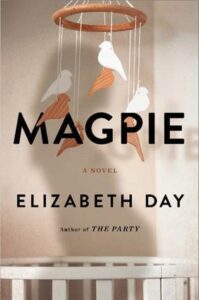Even before I sat down to write Magpie, I knew I wanted there to be a stomach-flipping twist in the middle of the book. If writing is the great vocational love of my life, the longer relationship is the one I’ve had with reading. And as an inveterate reader, there is nothing I enjoy more than being swept up in a plot and then—suddenly—having all my preconceptions pulled out from under me with a deft authorial sleight of hand.
It’s the literary equivalent of swimming in the sea and being lifted up by a large wave. There’s a thrilling sense of not quite knowing what will happen next, a moment of terror…and then you’re deposited safely back, feet once again grazing the sand, but everything feels a bit different. You suddenly realise the sea has its own identity and power and you can’t ever fully trust it again.
Although I love reading books, I don’t often remember the intricacies of the plot as much as I do the feeling they left me with. But with all of the following, I recall with absolute precision the twist and the way it made me want to race back and read the whole thing over again to see how the author had done it. I sincerely hope Magpie makes you feel the same way.
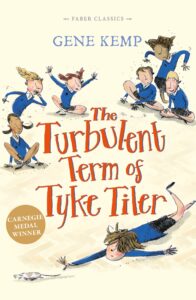
The Turbulent Term of Tyke Tiler, by Gene Kemp
This was the first book I ever read with a gasp-out-loud twist at the end. I remember absolutely devouring it when I was eight or nine and, as such, Gene Kemp is probably responsible for my lifelong obsession with plot twists and unreliable narrators. On the surface, this seems to be a fairly standard schooldays story, narrated by Tyke Tiler, a mischievous 12-year-old with the reputation of being a troublemaker. By the final page, you realise Kemp has completely subverted your expectations.
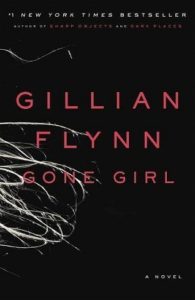
Gone Girl, by Gillian Flynn
Arguably the Ur of all literary plot twists: brilliantly conceived and so deftly written that I truly did not see it coming. The book opens with preparations for Nick and Amy Dunne’s fifth wedding anniversary. When Nick’s clever and beautiful wife disappears, the cops close in. He’s acting evasively and soon becomes their prime suspect. What happens next reveals that all is not as it seems while deconstructing the concept of the ‘cool girl’ with savage force.
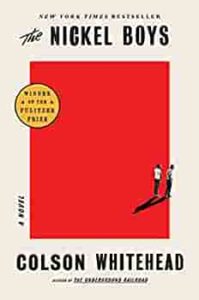
The Nickel Boys, by Colson Whitehead
Elwood Curtis is a smart Black boy destined for a bright future whose life is derailed when he is wrongly accused of a crime and sent to the abusive Nickel School corrective institute. Whitehead manages not only to surprise the reader with a final chapter plot twist, but re-contextualises the past in a way that is both profound and meaningful.
Plot twists are often wrongly seen as the preserve of crime or thriller writing: Whitehead shows how it can be done in a literary novel, and how the twist adds potency to the whole.

The Murder of Roger Ackroyd, by Agatha Christie
Christie is the undisputed mistress of the detective novel plot twist. I read all her books when I was 12, and gave them each a mark out of ten. Only two scored a full 10. One was And Then There Were None. The other was The Murder of Roger Ackroyd. I could have chosen either but I went with this one because it’s such a brilliantly bold plot twist that it makes me laugh with delight every time I remember the trick she played. The identity of the murderer is literally staring us in the face all along.
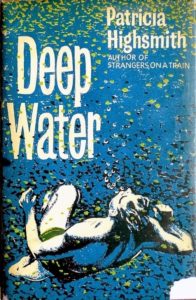
Deep Water, by Patricia Highsmith
I’m hugely influenced by Highsmith. She writes unbalanced people so incredibly well, without ever giving in to melodrama. There is a restraint to her prose that I really admire. Deep Water is a great example of a gradual layering of detail and twists which become more powerful in their accumulation than they would be on their own. Highsmith is adept at making the mundane the most chilling thing in the world. Here she tackles a loveless marriage with a neurotic wife and a seemingly decent husband who might or might not be a sociopath.

Jane Eyre, by Charlotte Bronte
Charlotte Bronte wrote psychologically-driven fiction way before her time. In Jane Eyre, she revolutionised the fictional form by lasering in on her protagonist’s inner thoughts with a first-person narrative. The twist in this novel comes halfway through and is so famous it has entered the public consciousness. Although I didn’t realise this at the time, the ‘mad woman in the attic’ trope clearly had some influence on Magpie—and that’s all I can say without giving too much away!
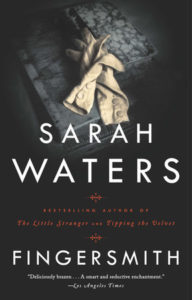
Fingersmith, by Sarah Waters
This is a 500-page novel that I could not read quickly enough. The plot swallows you up whole. It’s set in 19th century England and follows the story of Sue Trinder, an orphan raised by thieves. In order to escape her impoverished circumstances, Sue agrees to take part in an elaborate ploy to con a rich aristocrat, Maud Lilly, into parting with her fortune. But the two women forge an unlikely friendship, which develops into a mutual physical attraction, and the second half of the novel completely overturns our preconceptions.

Never Let Me Go, by Kazuo Ishiguro
Whenever I read an Ishiguro book, I’m struck by how beautifully he conveys human yearning. This novel is no exception. It centres around three students—Kathy, Ruth and Tommy—who attend a boarding school in the English countryside. It’s a school that prizes physical health to a strange degree and from the outset, the reader can sense that there’s something special about this teenage trio. They have no parents and contact with the outside world is strictly forbidden.
The first twist in this book comes early on, and is launched like a grenade into the reader’s understanding of the characters’ plight. The book asks a fundamental question about what it is to be human, and the ending took my breath away.
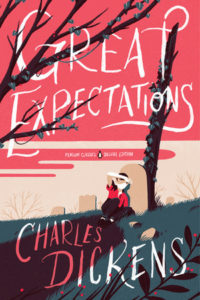
Great Expectations, by Charles Dickens
This is probably my favourite Dickens novel. I read it for the first time, somewhat incongruously, when I was backpacking round Madagascar as a 19-year-old. I was immediately enthralled by the rich tableau of unforgettable characters—Pip, an orphan brought up by his older sister (so many of my selected books seem to have orphans in them as well as memorable twists…), the escaped convict Magwitch and the embittered jilted bride, Miss Havisham, to name but a few.
When Pip inherits an unexpected fortune, the mystery is where it comes from. Pip has his suspicions, and so do we—but Dickens pulls the rug from under us.
***


